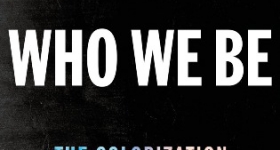Claire posted a great Openish Thread the other day: Should Asian American parents talk to their multiracial kids about racism? My response was essentially, "Yes, but how?"
Before our daughter was born, when my husband was just Boyfriend and Hugga was merely a seed in my belly, this was the most important issue to me. Yes, obviously I had no idea what it would take to raise a baby at the time (money and maybe the skill to operate heavy machinery on no sleep), but that's beside the point. I went out and made sure the little one had equal amounts of books in Tagalog, Korean, and English. I made sure all of her English books prominently featured people of color. When we found out our baby was going to be a girl, I searched high and low for representations of kid-friendly but still badass women of color. I wanted to make sure that she wouldn't get to high school wondering why nobody on television or in her books looked like her. As it turns out, none of the characters in the books I bought for her look like her either.
I'm beginning to realize that to talk to your child about race can be distinctly different from talking to your child about racism. My parents taught me to be proud of my Filipino heritage, which was certainly clutch, but they didn't really know how to help me deal with actual racism -- that kids didn't want to come over to play because my house smelled funny and my family was weird.
Did your parents ever have proactive, Very Special Talks about racism with you? Did they ever take a consciously anti-racist approach when talking to you about race? I'll venture a guess: if you're the child of Asian immigrants, then probably not. My mom's best advice was to "just ignore it." My dad, on the other hand, thought a racial conspiracy lurked around every corner. I grew up between two extremes, and as an adult I find myself still in the middle: angry about it all, facing teaching moments every day, but still unable to actually confront and deal with racism in a meaningful way.
We all want our children to have better things and better lives than we've had, and we all want our children to, in their own way, make the world a better place. No doubt we want them to equip them with the self-esteem and the language to be able to handle and deflect racism, and maybe even actively challenge racist assumptions... but how?
Here's the thing: my husband happens to be hapa, which I realize is a pretty big advantage for navigating this sort of thing. He already has experiential knowledge in issues that (at least some) multiracial people face. And maybe this is an incorrect assumption, but while he's Korean and I'm Filipino, it's not like our experiences with race are so different that we have trouble understanding each other, the way other interracial couples might. He has always been the type to check me on some of the judgmental things that come out of my mouth and has helped me understand the sweeping generalizations I sometimes make. That's a step, right? To teach our little girl from the jump not to make assumptions about other people?










Comments